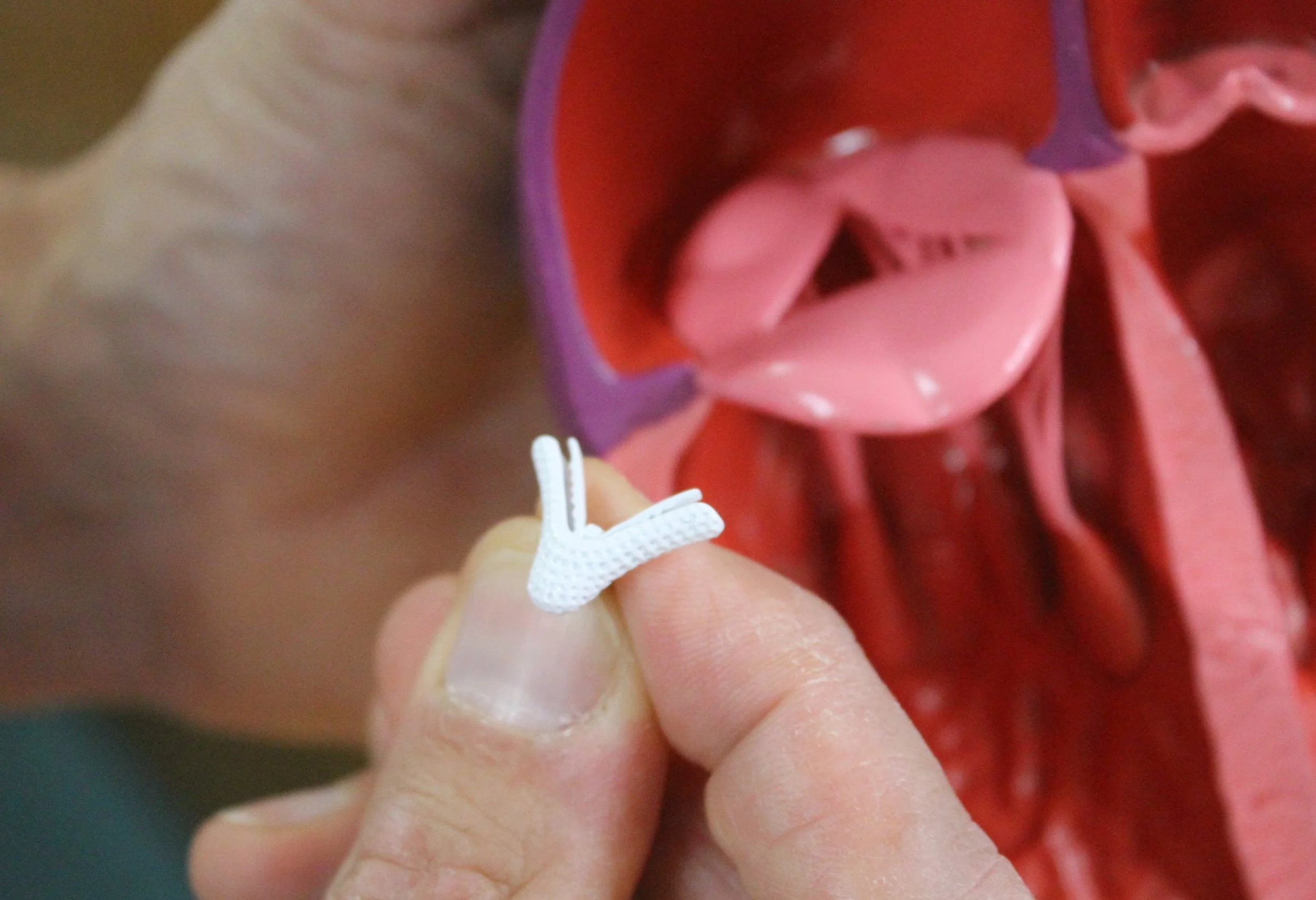Pioneering heart procedure transforms patients’ lives
Two North East patients have become the first in the region to undergo a revolutionary heart procedure at The James Cook University Hospital.
Valerie Wells, from Peterlee, and Lindel Carre, from Durham, are now enjoying a renewed lease of life after undergoing tricuspid transcatheter edge-to-edge repair (TEER) at the Middlesbrough hospital.
The minimally invasive procedure is designed to treat tricuspid regurgitation – a condition where the heart’s tricuspid valve becomes leaky, causing severe symptoms such as fatigue, leg swelling, and breathlessness. The valve leak is particularly common in patients over the age of 65.
Traditionally, the condition is difficult to manage with medication alone and open-heart surgery can be too high-risk for older patients.
TEER is a safer alternative and involves inserting a small clip through a vein in the groin to reduce the leak in the valve. Patients typically return home the next day with minimal recovery time.
‘Life changing’
Valerie and Lindel were both experiencing significant symptoms from their leaky valves and were asked if they’d like to be the first patients to have the new procedure.
Since TEER is so minimally invasive, they were both discharged the day after their procedure and felt the positive difference quickly.
Valerie, a retired nurse, had previously undergone a successful mitral valve replacement with open heart surgery at the hospital in 2021. But, in recent years she began experiencing increasing breathlessness as her health slowly deteriorated.
“Leading up to Christmas, I was wrapping presents with family, and I was thinking ‘this is the last time I’m going to be doing this’. I could barely walk three or four steps without having to stop to get my breath back.”
She added: “Before having this new procedure, I didn’t have a life – that’s how I felt. I don’t think that way now – that’s the difference it’s made to me.”
Valerie praised the care she received from the entire cardiology team: “As a retired nurse, I was watching everything closely – and I couldn’t fault a thing.
“Nothing was left for me to guess. In fact, I passed a comment when I was waiting to be anaesthetised that I’ve never felt so relaxed prior to an anaesthetic in my life. The whole experience for me was great.
“Dr Williams told me if the procedure worked, I would feel a positive difference, but I didn’t expect it to be so positive.”
Like Valerie, 83-year-old Lindel saw dramatic improvements almost immediately after the TEER procedure.
For the last two years the retired teacher has been taking medication for her leaking valve and suffered with the heaviness of her legs caused by her worsening valve condition.
“It was a privilege to be offered this new procedure,” she said. “I was really thrilled to be one of the first patients.
“I have much more energy, no breathlessness, and I can drive further than I could before – I’m more confident and more independent.”
Both procedures were performed by the hospital’s TEER team, led by cardiology consultants Paul Williams, Seth Vijayan and Richard Graham.
Dr Williams said: “TEER represents a major step forward in the treatment of tricuspid valve disease for patients who would otherwise face very limited options. It’s incredibly rewarding to see patients like Valerie and Lindel experience such an improvement in their quality of life.
“Starting this service was a real team effort and I’d like to thank our amazing structural heart team and our catheter laboratory and ward staff for helping to make this happen.”


